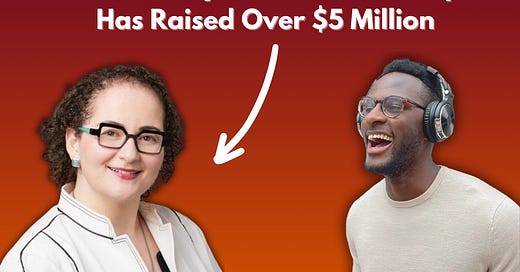Health Byte 004: Elina Onitskansky, CEO of Ilant Health
Elina Onitskansky, Founder and CEO of Ilant Health, shares her journey with obesity and the importance of building trust, empathy, and personalized care in obesity treatment. Drawing from her extensive experience as a former Senior Vice President at Molina Healthcare and an Associate Partner at McKinsey and Company, as well as her education at Harvard University, Elina brings a unique perspective to the field of obesity care that you won't want to miss.
Now available on Spotify | Apple Podcasts | YouTube
Here are some highlights from our conversation:
It's easy to assume that obesity is simply a result of poor choices or lack of willpower, but the reality is far more complicated. Our genes play a big role in determining how our bodies process and store energy, and some people are simply more prone to weight gain than others. On top of that, our environment and society shape our access to healthy food, opportunities for physical activity, and even our attitudes about body weight.
Every person's experience with obesity is unique, and there's no one-size-fits-all approach to treatment. What works for one person may not work for another, and healthcare providers must tailor their recommendations to each individual's specific needs, preferences, and circumstances. For some people, lifestyle changes like diet and exercise may be enough to achieve significant weight loss. Others may benefit from medication or even surgery, depending on the severity of their condition and any underlying health issues.
The high rates of obesity in our society are taking a serious toll on our healthcare system. Obesity increases the risk of developing a wide range of health problems, from diabetes and heart disease to certain types of cancer. Treating these conditions is incredibly costly, and as more and more people struggle with obesity, the financial burden on our healthcare system continues to grow.
Losing weight is hard, but keeping it off can be even harder. That's why ongoing support and engagement are crucial for people working to manage their weight over the long term. It's not enough to give someone a diet plan and send them on their way; they need regular check-ins, encouragement, and guidance to stay on track and overcome any obstacles that arise. This might involve monthly appointments with a healthcare provider, joining a support group, or using technology like apps or wearables to track progress and stay accountable.
The words we use matter. Language that feels stigmatizing or blaming can shut people down and make them less likely to seek help. Instead, providers should use neutral, non-judgmental language that acknowledges the complexity of obesity and emphasizes the importance of self-compassion and gradual, sustainable change. It's also crucial to be culturally competent and to recognize how different cultural beliefs and practices can influence attitudes toward weight, diet, and healthcare.



